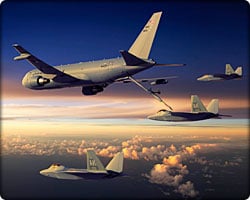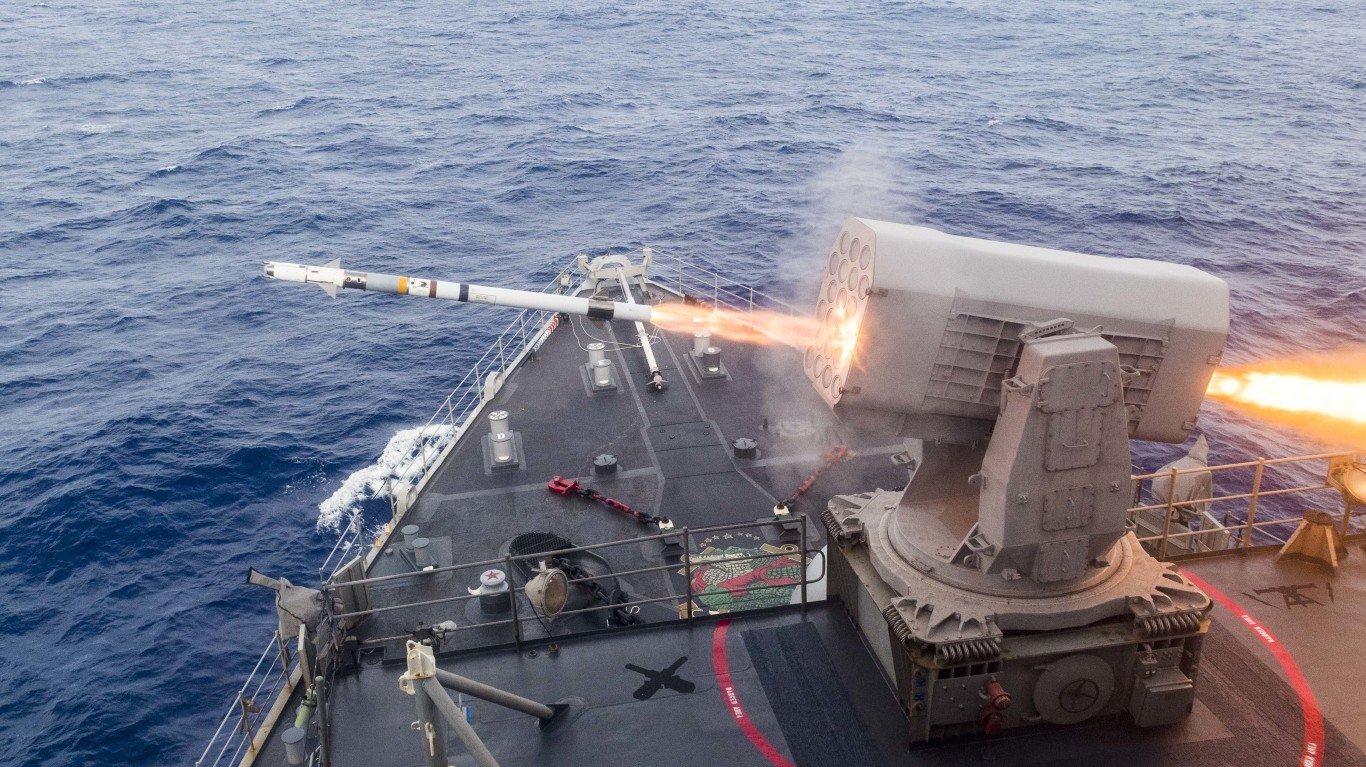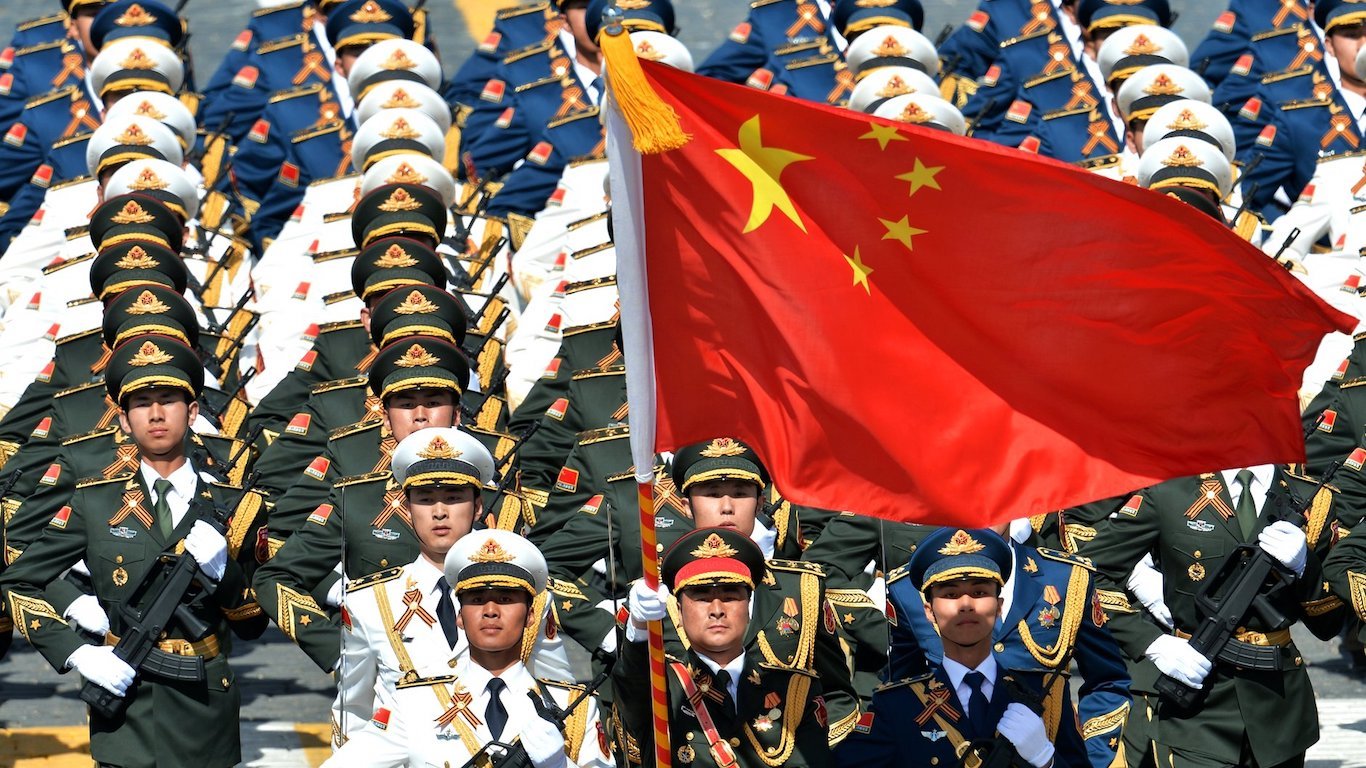
Source: The Boeing Co.
The U.S. Government Accountability Office (GAO) released a review of the KC-46A program late last week. It indicates that the program cost has dropped 5.4% from $51.7 billion to $48.91 billion. That is the good news.
The less-good news is that a previous problem with the new tanker’s wiring harness caused the Air Force to delay its production decision for two months, out to October of this year. That meant changes to the test flight schedule. The GAO says:
With [U.S. Air Force] program office approval, Boeing restructured its nearly 2,400 development flight test hour plan to focus on demonstrating key KC-46 aerial refueling capabilities required for the production decision. Significantly less testing will now be conducted prior to the decision and only three test months will be on a KC-46, compared to the original plan of 13 months. This testing is intended to demonstrate design maturity and fix design and performance problems before a system enters production. Boeing remains at risk of not being able to demonstrate the aerial refueling capabilities in time to meet the new production decision date due to late parts deliveries, software defects, and flight test cycle assumptions, which could result in additional delays.
Boeing has no wriggle room in the initial development part of this contract. The Air Force is paying a maximum of $4.9 billion for this phase, and anything above that is Boeing’s problem. The Air Force program office estimates that Boeing is over budget by $1.4 billion, while Boeing claims it is just $380 million over budget.
ALSO READ: Defense Budget Has No Room for Air Force Training Jet
According to the GAO, the reduction in the total cost of the tanker program is the result of fewer engineering changes and lower construction costs to build or modify new facilities to support the planes during their development.
At the end of those three months of flight testing, the Air Force is scheduled to decide whether or not to begin building the first production models. If Boeing cannot meet that target, it almost surely will not meet its contractual obligation to deliver the first 18 production aircraft by August 2017.
Boeing is downplaying the concerns about the KC-46A, but as Leeham News and Comment points out, “Boeing has a history of denying problems right up until the point it no longer can.”
Boeing’s shares traded fractionally lower in the noon hour on Monday, at $154.37 in a 52-week range of $116.32 to $158.83.
Sponsored: Find a Qualified Financial Advisor
Finding a qualified financial advisor doesn’t have to be hard. SmartAsset’s free tool matches you with up to 3 fiduciary financial advisors in your area in 5 minutes. Each advisor has been vetted by SmartAsset and is held to a fiduciary standard to act in your best interests. If you’re ready to be matched with local advisors that can help you achieve your financial goals, get started now.
Thank you for reading! Have some feedback for us?
Contact the 24/7 Wall St. editorial team.

